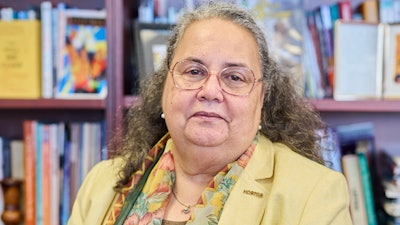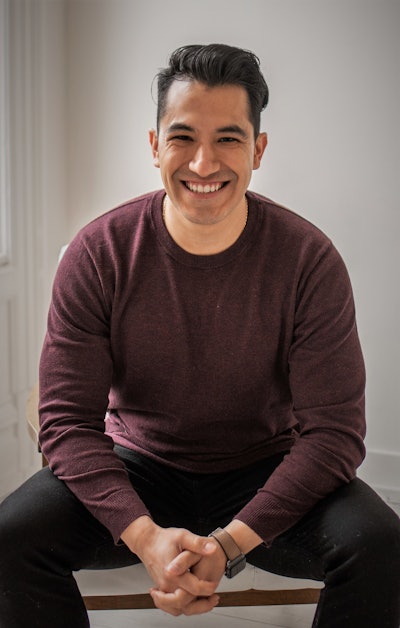Twenty-one finalists are setting an example of engaging Latinx students and working with them to achieve degree attainment and career success.
Created in 2005 by Excelencia in Education, Examples in Excelencia is a national initiative to recognize and promote evidence-based practices that accelerate Latinx student success in higher education. For this year’s Examples, Excelencia received 145 program submissions representing 23 states and Puerto Rico.
“Examples of Excelencia is intended to make sure there are no reasons for not serving Latino students,” says Dr. Deborah A. Santiago, co-founder and CEO of Excelencia in Education. “We wanted to recognize and celebrate the people that are intentionally serving the communities.
“We need to identify what’s working so people that want to know what they can do will know there are others in the space doing the good work,” she adds. “They should take what is authentic for their institutions, for their programs and serve their students well. … We want funders to invest in these programs so they can be scaled up or replicated.”
On Oct. 28, Examples of Excelencia will be announced and recognized at the annual Celebración de Excelencia. Following are profiles of four of the finalists, one from each category — associate, baccalaureate, graduate, and community-based organizations.
Associate
Joint Dual Engineering Degree Program with City College of New York’s Grove School of Engineering
Hostos Community College
In 2020, when Dr. Daisy Cocco De Filippis returned to Hostos College (part of the City University of New York system) after 12 years as president of Naugatuck Valley Community College, she was pleased to see that an engineering program she helped build in the early 2000s was still in existence. An immigrant from the Dominican Republic and a product of the CUNY system — undergraduate and graduate — Cocco De Filippis, now president of Hostos, is intent on developing means for students to succeed in higher education.
 Dr. Daisy Cocco De Filippis
Dr. Daisy Cocco De Filippis
“The provost at City College was very receptive to the concept of doing this two-plus-two,” says Cocco De Filippis of the Joint Dual Engineering Degree Program with City College of New York’s (CCNY) Grove School of Engineering launched in 2004. This dual admission program between Hostos, which offers an associate degree in civil engineering, and CCNY, which has a bachelor’s degree, enables Hostos students to take the same curriculum that CCNY students take in their first two years.
Cocco De Filippis credits the faculty for their effective teaching and mentoring.
“The college has tutoring free of charge in a centralized space,” says Cocco De Filippis. “The way the faculty works with different cohorts and the way they mentor and guide them [shows] intentionality.
“There is also a good relationship between the faculty here and the faculty at City College,” she adds. “It’s an example of the kind of collaboration that happens at CUNY. … There is also built in a couple of courses where the students actually go to City College and take the courses, so they become acclimated even before they transfer.”
Baccalaureate
GANAS Program
Portland State University
The Gaining Awareness & Networking for Academic Success (GANAS) program at Portland State University (PSU) was launched in 2010. It is a year-long support/mentoring program designed to help Latinx students transition from high school to college. Approximately 40 students participate each year, and to date 418 students have participated. Former participants become mentors.
 Emanuel Magaña
Emanuel Magaña
“We support them. We guide them. We provide holistic advising,” says Emanuel Magaña, coordinator of Latino/a student services and GANAS. “They get mentors and we do events and workshops throughout the year to help them build community and a support network on campus. … We find we have a really good retention rate when we get the students attached to being on campus.”
They address themes such as cultural identity, the importance of community, and learning strategies, such as study skills, time management, financial literacy and effective communication. Students share their educational goals, as well as areas in which they may need support, and are informed of support services and other resources available to them.
In a typical school year, many GANAS participants commute to campus, so on-campus events are held either midday or mid-to-late afternoon. During the 2020-21 academic year, programming was remote and connections were still made, says Magaña. This year, it will be a hybrid model.
“Our mentors were a huge part of our success. They’re the ones who hosted a lot of the events and brought a lot of energy,” Magaña says.
Graduate
Éxito! Latino Cancer Research Leadership Training
Institute for Health Promotion Research (IHPR) at UT Health San Antonio
Éxito! Latino Cancer Research Leadership Training was launched in 2010 to offer an annual summer institute, Careers in Latino Cancer Health Disparities Research, internships and continuing support for alumni to increase the number of Latinx students who pursue a doctoral degree and a career researching Latinx health disparities. The summer institute is open to master’s degree Latinx students and others with the specific career objective of serving the Latinx population.
 Dr. Daniel C. Hughes
Dr. Daniel C. Hughes
“The program addresses Latinx students’ access by Latinx mentors,” he adds. “We have a lot of the same issues in terms of how we’re looked at and the barriers that we have to overcome. There is great synergy when we have everybody together to discuss. These students realize they are not alone.”
The summer institute engages students in research and understanding its power to bring about change. It raises their awareness of current research methods, theories and interventions to reduce Latinx cancer health disparities. Participants learn about different aspects of cancer control research as well as the skills necessary to achieve results.
As of the latest cohort this past June, there have been 226 participants in the summer institute, 19 of whom have already earned doctorates and some have become mentors. The other mentors come from the network of Dr. Amelie Ramirez, one of Éxito’s founders and graduate faculty at UT Health San Antonio.
“Our program is designed in the spirit of cultural congruence to focus on Latinx issues to address Latinx disparities,” says Hughes, assistant professor/research at UT Health San Antonio who has studied Latinx breast cancer survivors. “There is something about everybody speaking Spanish. It seems it unites everybody in this program.”
Community-Based Organization
Building Bridges Through Education
West Michigan Hispanic Chamber of Commerce
Launched at full scale in October 2019, Building Bridges Through Education (BBTE) is a workforce development initiative with the mission to grow a dynamic and inclusive workforce in West Michigan by cultivating a Latinx talent pipeline. The goal is to prepare high potential Latinx college students with the tools to reach their career goals and encourage businesses to create jobs and internship opportunities.
 Jessica Ledesma
Jessica Ledesma
BBTE is built on the theoretical framework of collective impact. Ledesma notes it involves trust-based partnerships and co-creation — from the philanthropic funders to the employers to the Latinx community.
BBTE holds the annual Get Focused: The Summit, a career fair that combines professional development and networking in a one-day event. The BBTE fellowship offers identity asset-based professional development over the course of two semesters, which is co-led by the industry partners. The fellowship is divided by industry into business/STEM, health professions, nursing and social/public service.
“During the first semester, students begin to discover essentially who they are and what they bring to the table, as far as skills and assets,” Ledesma says. “The second semester is focused on … how that manifests in the work environment. What the fellowship really provides is resume content as well as the ability to articulate assets and skills when students are seeking internships or jobs. That is the number one thing we heard from employer partners that students lack.”
This article originally appeared in the September 30, 2021 edition of Diverse. Read it here.











